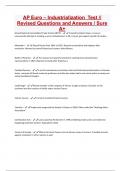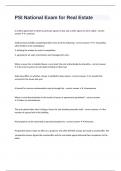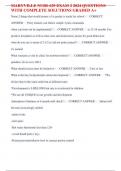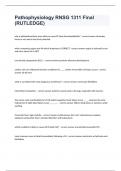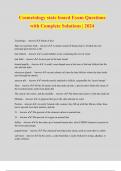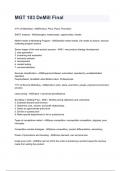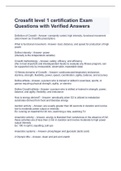Tentamen (uitwerkingen)
AP Euro – Industrialization Test // Revised Questions and Answers / Sure A
- Vak
- Instelling
(Grand National Consolidated Trade Union) GNCTU - Created by Robert Owen, it was an unsuccessful attempt at creating a union confederation in GB. It never got support outside of London. Alexander I - King of Russia from 1801 to 1825. Became conservative and religious after revolution. Wanted to ...
[Meer zien]
